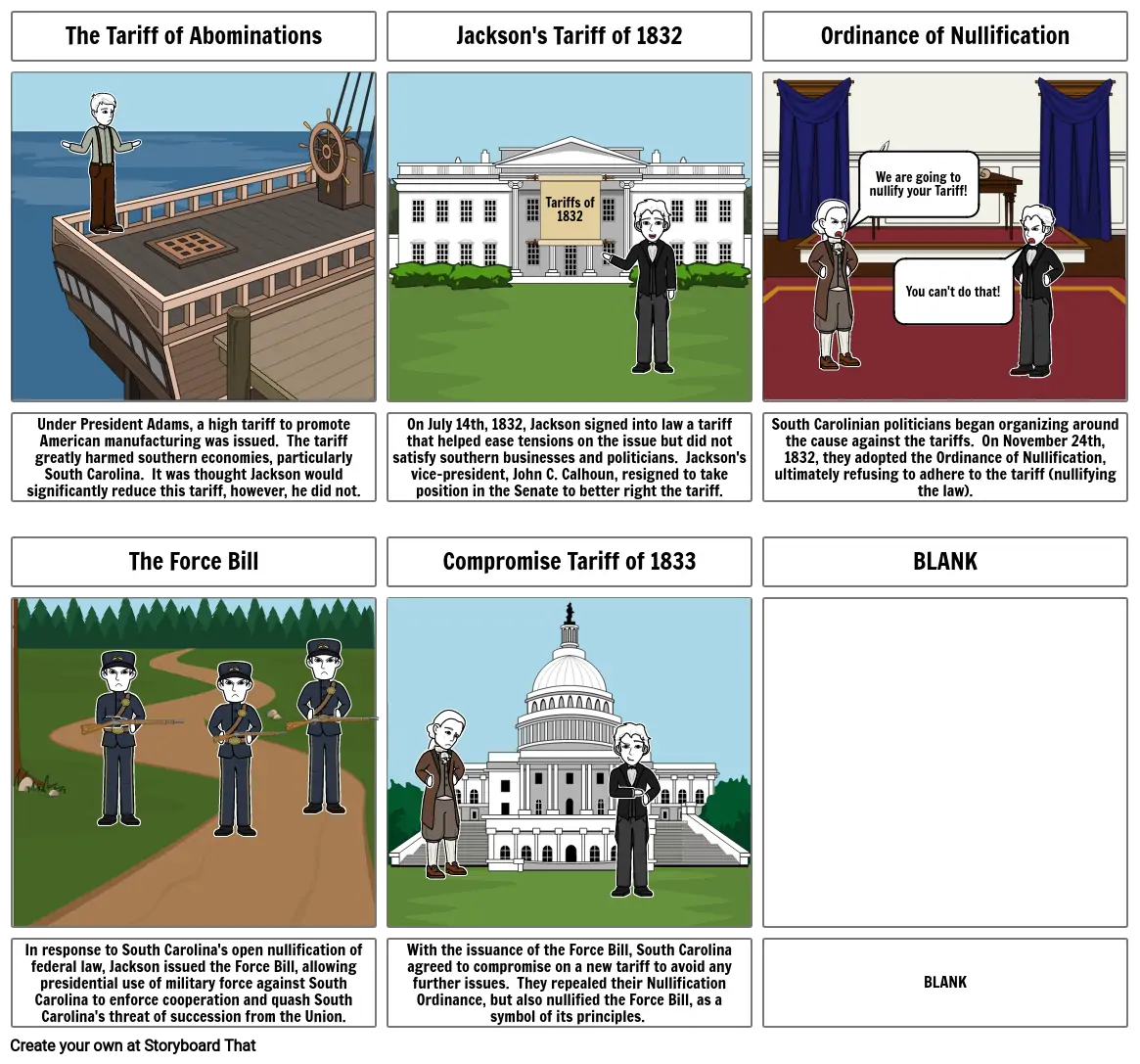Jackson - Tariffs

Süžeeskeem Tekst
- The Tariff of Abominations
- Jackson's Tariff of 1832
- Tariffs of 1832
- Ordinance of Nullification
- We are going to nullify your Tariff!
- You can't do that!
- Under President Adams, a high tariff to promote American manufacturing was issued. The tariff greatly harmed southern economies, particularly South Carolina. It was thought Jackson would significantly reduce this tariff, however, he did not.
- The Force Bill
- On July 14th, 1832, Jackson signed into law a tariff that helped ease tensions on the issue but did not satisfy southern businesses and politicians. Jackson's vice-president, John C. Calhoun, resigned to take position in the Senate to better right the tariff.
- Compromise Tariff of 1833
- South Carolinian politicians began organizing around the cause against the tariffs. On November 24th, 1832, they adopted the Ordinance of Nullification, ultimately refusing to adhere to the tariff (nullifying the law).
- BLANK
- In response to South Carolina's open nullification of federal law, Jackson issued the Force Bill, allowing presidential use of military force against South Carolina to enforce cooperation and quash South Carolina's threat of succession from the Union.
- With the issuance of the Force Bill, South Carolina agreed to compromise on a new tariff to avoid any further issues. They repealed their Nullification Ordinance, but also nullified the Force Bill, as a symbol of its principles.
- BLANK
Loodud üle 30 miljoni süžeeskeemi

